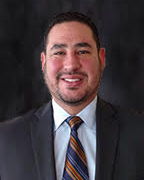Ibuado: Weight Given to Medical Reports at Trial
Tuesday, November 29, 2016 | 1
In the world of workers’ compensation, medical reporting is the staple upon which cases are lost or won. Other factors may affect the outcome (applicant’s and witnesses’ credibility and ability to testify well), but this article focuses on the medical reporting used in trial and the factors the court uses to determine how much weight to lend each particular report.

Jorge Ibuado
For the purpose of this article, we will deal with three main medical reports, including those from primary treating physicians, panel qualified medical evaluators and agreed medical evaluators.
California Code of Regulations, Title 8, Section 10606, deals with physician reports as evidence. This section lays out the requirements for medical reports to comply with if they are to be used as medical-legal reports at trial. For our purposes, let us assume that all of the reports referenced conform to these requirements.
AME trumps all
When the parties agree on a doctor to resolve the issues in dispute, the doctor is called an agreed medical examiner. Because both parties agreed to use the particular physician, it is a forgone conclusion that both parties agree to be bound by the medical opinions, diagnosis and reasoning of that agreed-upon doctor. Because of this, as a general rule, the Workers' Compensation Appeals Board and the workers' compensation judge are required to rely more heavily on the reporting of an AME.
In Power v. WCAB, the board reversed a decision where the WCJ had given more weight to the PTP's report than to the AME’s. The board indicated, “We begin by presuming that the agreed medical examiner has been chosen by the parties because of his expertise and neutrality. Therefore, his opinion should ordinarily be followed unless there is good reason to find that opinion unpersuasive.” The Court of Appeals upheld the decision by the board to reverse the original ruling.
Caveat: Although the WCAB will usually defer to the AME’s opinions, if the doctor does not properly address apportionment, the report is not complete on the permanent disability issue. Inasmuch as the burden falls on defendants to argue apportionment, it is imperative to get the AME to properly address the issue.
PQME Over PTP?
If one or both of the parties disagree with the report of the treating physician and cannot agree on an AME, one of the parties should request a three-member panel of physicians (QMEs) from the Division of Workers' Compensation Medical Unit. Each party makes their respective strike and an evaluation is scheduled for the applicant with the remaining doctor. The WCAB does not give PQME’s the same weight as AMEs. When weighed against the report of the primary treating physician, the appeals board will follow the report considered most persuasive and found to be substantial medical evidence.
The board has stated that, “When faced with differing medical opinions from the Panel QME, the treating physician, and the utilization review physician on the issue of whether prescribed treatment is reasonably required to cure or relieve the effects of the employee’s injury, the WCJ or appeals board need not rely on the opinion of a particular physician.”
Some are under the misconception that once a party obtains a PQME report, the WCAB will favor that report. However, if a PTP report is better reasoned, a WCJ may very well follow the PTP report. It is important to remember that although there is no “treating doctor presumption,” the treating doctor’s report may still be relied upon in the face of a PQME.
Practice tip: As a practitioner, one should always be sure the report(s) being relied upon for trial, whether AME, PQME or PTP, are in every respect substantial medical evidence. If the report is lacking, a request for supplemental report by way of interrogatory or deposition of the doctor should take place prior to a mandatory settlement conference.
Jorge Ibuado is an associate attorney at Bradford & Barthel’s Ontario location. This blog post is reprinted with the firm's permission.






Comments